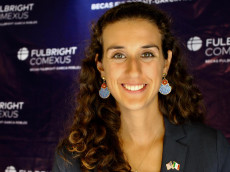*Trigger warning: sexual violence*
In January 2004, the Government of Uganda (GoU) referred itself to the judgement of the International Criminal Court (ICC) for war crimes and crimes against humanity perpetrated by the Lord’s Resistance Army (LRA) in Northern Uganda.
For context, the LRA is a rebel group that operated from 1987-2006 in Northern Uganda, where they unsuccessfully fought to establish an independent Acholi government ruling according to the Ten Commandments under the leadership of the self-declared prophet Joseph Kony. They are infamous for abducting approximately 30,000 children, who were forced to serve as soldiers, and domestic servants and wives to commanders. In these capacities, forced conscripts suffered unspeakable hardships.
Much literature has been written on the GoUs self-referral. The overwhelming consensus is that the GoU hoped to gain international legitimacy in the fight against the LRA. Indeed, the 2004 budget proves that point; donors provided some 50 percent of the total budget, with the cost of defence amounting to 23 percent, and that of public administration to 22 percent of total government expenditure. Donations inadvertently entrenched Museveni’s patronage system, and supported government corruption.
The ICC issued warrants against Joseph Kony, who remains at large, and three other LRA commanders, including Raska Lukwiya and Okot Odhiambo, who have since died, and Dominic Ongwen, who was sentenced to 25 years of imprisonment for a total of 61 crimes comprising crimes against humanity and war crimes on February 4, 2021. In accordance with article 79 of the Rome Statute, the ICC may order money collected to benefit victims of crimes and their families. Since 2004, the Trust Fund for Victims has been responsible for implementing Court-ordered reparations, and providing psychological, physical, and material support to victims and their families. According to Resolution 60/147, adopted by the General Assembly on March 21, 2006, victims constitute
“persons who individually or collectively suffered harm, including physical or mental injury, emotional suffering, economic loss or substantial impairment of their fundamental rights, through acts or omissions that constitute gross violations of international human rights law, or serious violations of international humanitarian law. Where appropriate, and in accordance with domestic law, the term “victim” also includes the immediate family or dependents of the direct victim and persons who have suffered harm in intervening to assist victims in distress or to prevent victimization.”
In the specific case of Ongwen, victims are those who suffered harm as a result of his command over the Sinai brigade of the LRA between 1 July 2002 and 31 December 2005. Although Ongwen himself was a child soldier, he “was aware of the powers he held, and he took sustained action to assert his commanding position, including by the maintenance of a ruthless disciplinary system, abduction of children to replenish his forces, and the distribution of female abductees to his subordinates as so-called ‘wives,’” per the ICC’s decision on the confirmation of charges on March 23, 2016.
Two eligible victims are Victoria Nyanjura and Akello Margaret of an AP Partner organization in Northern Uganda called Women in Action for Women (WAW) that seeks to transform vocational training into livelihood opportunities to improve members’ economic, social, and political lives.
Victoria and Margaret were both abductees in the Sinai brigade within the indicated timeframe. The founder of WAW, Victoria was abducted by the Lord’s Resistance Army when she was 14 years old. After eight years in captivity, she returned with two children from her forced marriage to a rebel commander. Please listen to her story in greater detail here.
Like Victoria, Margaret was abducted as a child — at the young age of 10 while in second grade. She describes her experience:
I was forcefully given to a man to live with as his wife at an early age. I was beaten. We walked long distances carrying heavy luggage before I was rescued by the government soldiers in a close battle where the gunships, helicopters, and foot soldiers were all over. I remember that the caretaker of my eldest child disappeared, and I had to look for her. I then went with the government soldiers to look for my child and the caretaker. The soldiers almost shot at us thinking that we were soldiers wanting to fight them.
Life has been so hard ever since I returned because I had no home to return to; I lost my parents, and have nobody to look after me. I also got a man and we had 2 children, but he left me with them. It hurts me so much how these men act nice but end up hurting us further. I do not have any skills that can help me earn a living, but would like to learn how to make cakes and bread. There is a large market for them, and I am very sure it would help me to earn and be able to provide for my children and myself.”
This summer, AP successfully connected Victoria and Margaret to a member of the Trust Fund for Victims in Kampala, Uganda, who will help them file for reparations under the Ongwen verdict. AP will continue to monitor their progress, and advocate for their right to reparations.
Posted By Anna Braverman
Posted Aug 6th, 2021

